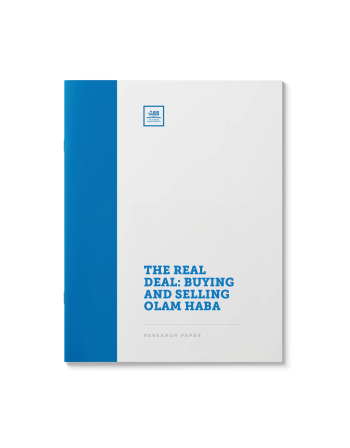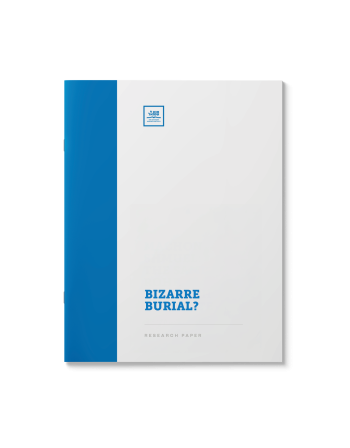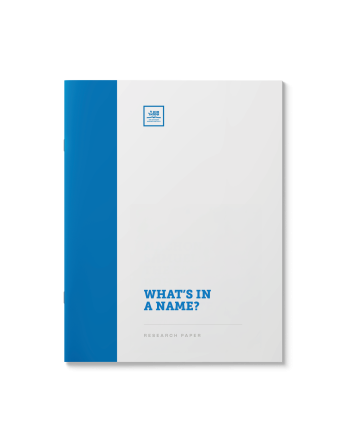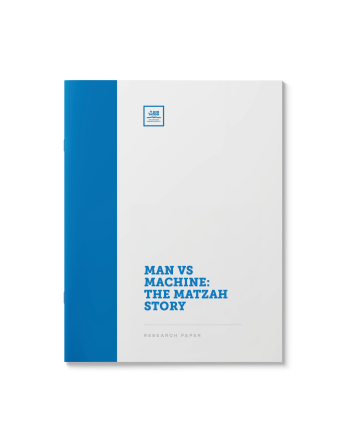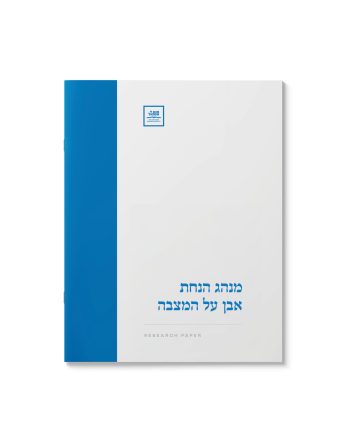שריפת גוף המת
$39.00
מקדמת דנא מסורת ההלכה היהודית לקבות את המת בקרקע דוקא. אלא שחדשים מקרוב באו למצוא סמך והיתר למנהג הגויים לשרוף את המת. מאמר תגובה ומסכם על חומרת איסור שריפת גוף המת. כי קבור תקברנו.
| Language | Hebrew |
|---|---|
| Paper Type | Research Paper |
| Pages | 7 |
Related Products
Guidance from contemporary Poskim on the permissibility of contraception. Reviewed by a Moreh Hora’ah.
“Either way, they are My children” [Talmud].
Blood is thicker than water, they say. The bonds of family are the anchor of an emotionally and spiritually healthy life. But what happens to these relationships after one passes on? Do we “meet again on the other side”? Do families stick together in the hereafter? What about teachers and their pupils? Is this contingent on whether the two are buried in close proximity?
Do the souls of the departed maintain a relationship with those left behind? Do they relate to and empathize with the trivialities of our corporeal existence? Does prayer at their grave-site invoke merit on their behalf?
A cornerstone of our belief is that a life of good deeds is rewarded with “a world that is truly good” in the Hereafter.
Is there another way? Can one “purchase” eternal reward on the open market? Can you get the “deal of a lifetime” (or the afterlife!) on ebay?
What are the Halachic principles of such a transaction? Can one buy or sell such ‘intangibles’? Would the transaction by valid, legal tender? Do “free market principles” and “art of the deal” apply? How does this compare to the historic partnership of Yissachar-Zevulun?
Includes a collection of stories about tzadikim who engaged in such “commerce” throughout the ages for the benefit of klal Yisroel.
Ancient Jewish sources indicate that Jews would bury their dead twice. What was the reason for this?
האם מותר להניח פרחים מעל ארון או קבר המת? הבנה יסודית בהגדרת האיסור והטעמים שלא ללכת בחוקות הגויים, מביא אותנו לסכם את שיטות הפוסקים בדין הנחת הפרחים.
Without question, our prize possessions are the children we raise, and it is they who remain our legacy after we depart from the world.
Traditionally, children pledge funds to tzedakah and perform other good deeds in the merit of their deceased parents and loved ones.
What are the legal and philosophical arguments in defense of the idea that the deceased may enjoy the merits accrued by the good deeds of others? What if the individual was less-than righteous? Can the tzedakah by community members benefit their soul as well? What makes Yom Kippur a most propitious day to pledge tzedakah for the deceased?
Why reducing the sanctuary of the soul to a pound of ashes is an unforgivable sin.
From the moment Avrohom circumcised himself at 99, the Jewish Bris has been the pivotal act of Jewish identity throughout history. It is at this moment that a Jewish boy is given his name. Yet when a bris must be delayed for medical reasons, can the parents give him his name anyhow, or must the boy remain nameless until the Bris takes place?
מסתבר שכולנו בקיאים בתורה, או ליתר דיוק – היינו. אכן, במעי אמו, מלמדים להעובר כל התורה כולה. אלא כי רגע לפני צאתו לאויר העולם, בא המלאך ומשכחו. מהי אפוא מהותה ומטרתה של לימוד זו? ללמוד כדי לשכוח?
לא טוב היות האדם לבדו. סקירה על דבר משמעות טובת האדם והתועלת שנוצרה על ידי בריאת האשה, על דרך הפשטני והמדרשי. עזר כנגדו.
“A single moment of repentance and good deeds in this world is greater than all of the World to Come” (Avot 4:17).
During the final stages of a terminal illness, a patient may endure pain and suffering with no hope of improvement. What measures must be undertaken to prolong the life of the patient?
What are the halachic requirements for administering nutrition, hydration, oxygen and antibiotics? Does the age or presence of mind of the patient play any role in the decision?
Although questions of this nature must be dealt with by a Rav moreh hora’ah b’poel on a case-by-case basis, this paper provides an overview of the relevant issues.
מנהג ישראל קדום להניח אבן על מצבת הקבר כשמבקרים בבית החיים. לפנינו סקירה כוללת על מקור המנהג וטעמו. הקיצו ורננו שוכני עפר.






